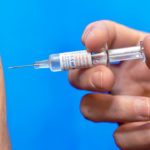 Given the considerable fear surround covid-19, the notion that people might volunteer to contract the virus might seem bizarre, yet doing so may significantly speed up the development of a vaccine. A new paper from the University of Warwick explores how such a scenario might be conducted legally and ethically.
Given the considerable fear surround covid-19, the notion that people might volunteer to contract the virus might seem bizarre, yet doing so may significantly speed up the development of a vaccine. A new paper from the University of Warwick explores how such a scenario might be conducted legally and ethically.
“Currently there are several vaccine candidates that are undergoing human safety testing, but to find out whether they work we need to discover what happens when a vaccinated person is exposed to COVID-19,” the researchers say. “With new infections dropping in the countries where research is taking place, it may be a long time before many of the volunteers in these experiments naturally come into contact with the disease.”
Historically, the researchers say that deliberately infecting people with a disease has been considered unethical by researchers, but the severity of the pandemic is prompting a rethink.
“In other areas of life it is not unusual for society to allow individuals to do things that put them at personal risk, such as to be a fire fighter or a health professional treating COVID-19 patients,” they explain. “Speeding up vaccine development even by a few weeks or months could result in saving many lives.”
Ethical opposition
There are a number of common arguments against taking such an approach, including the risk of harm to volunteers, the potential of no vaccine resulting from the experiment, the reliability of the consent provided by the volunteer, the reputational risk posed by the research, and the ethical slippery slope such a venture might place one upon.
The research attempted to analyze them all, and found that none of the arguments were in themselves insurmountable. For instance, it was not a prerequisite that ethical standards would have to be lowered to conduct such experiments, with it perfectly possible for ethical safeguards to be erected.
The article provides practical guidance for both researchers and regulators, with three crucial questions posed for any researchers considering such an approach:
- Has reasonable care been taken to maximize the potential benefits of the proposed study and minimize the risks of harm to participants?
- Is the informed consent process sufficiently robust?
- What do we need to do now to amend our processes to speed up the consideration and approval processes for proposed COVID-19 vaccine candidate phase II and phase III trials?
“My research shows that it is incorrect to rule out human challenge experiments as unethical in relation to COVID-19 vaccine development. I argue that you can apply the same standards of ethics, but that they lead us now to a different conclusion because the facts are different,” the researcher says.
“Very large numbers of people globally are affected both directly and indirectly from COVID-19, and the saving of a few weeks or months of time in vaccine development can be expected to result in saving a large number of lives. There are also good ways to minimize the risk of harm to volunteers, and it is ethical, and I argue, admirable to allow a volunteer to choose to take a personal health risk to help serve a greater benefit to humanity.”